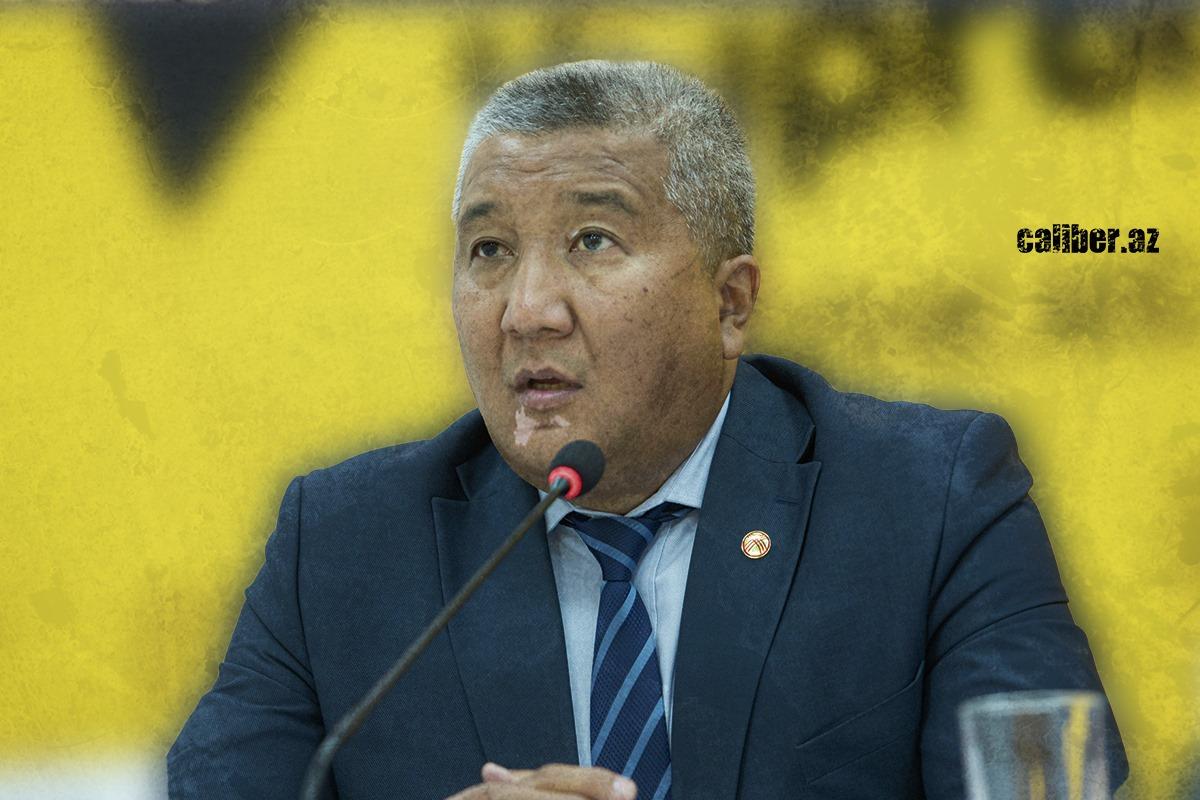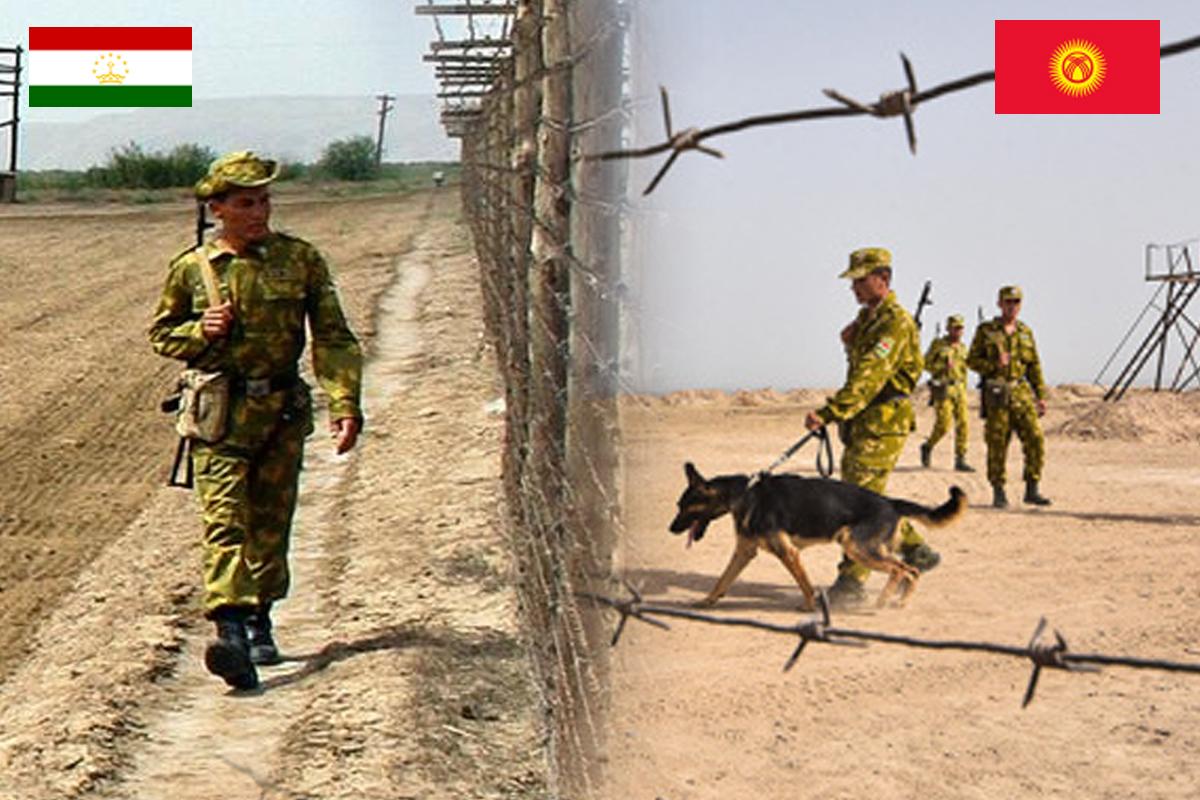What is the bone of contention between Tajikistan and Kyrgyzstan? Edil Osmonbetov for Caliber.Az
Another armed incident on the Tajik-Kyrgyz border resulted in the death of a Tajik border guard. According to the Tajik news agency "Asia Plus", yesterday at about 6 a.m., a gunfight took place on the border in the area of Keh, Sughd Region, and border guards of the two countries immediately took up combat positions. Since the beginning of this year, armed shootings on the Tajikistan-Kyrgyzstan border were recorded in January, March, and April.
The incidents were repeated even after Kyrgyzstan and Tajikistan negotiated an agreement on a complete cease-fire and the withdrawal of additional forces to the locations of the border after the events of January 28 this year. According to the media, at that time the parties agreed to open the road Batken - Isfana, as well as agreed on joint patrolling of the border areas by law enforcement officers to prevent conflicts.
According to various reports, between seven and eleven people were wounded in the January firefight in Kyrgyzstan, including both military and civilians. According to Tajik media, two Tajik citizens were killed. In subsequent armed incidents on the same border, there were casualties among soldiers and civilians on both sides.
It is worth mentioning that the length of the Kyrgyz-Tajik border is 970 kilometers of which about 520 kilometers is specified. However, according to the latest data, an agreement has been reached on the specification of another 81 kilometers. It should be noted that the largest conflict on the border occurred a year ago because of a dispute between residents of Kyrgyz and Tajik villages near a water distribution point. It was reported that the border troops later intervened. As a result, the sides blamed each other for the escalation. On the Kyrgyz side, 154 people were injured and 36 were killed, including two children. The Tajik authorities officially announced 19 dead and 87 wounded.
So what can't the Tajiks and Kyrgyz people share, and is the unresolved issue of a common border the only stumbling block in relations between the two neighboring Central Asian states? Kyrgyz political analyst and international relations expert Edil Osmonbetov answered these and other questions in an interview with a Caliber.Az journalist.

What's the bone of contention?
According to Osmonbetov, the main problem that periodically leads to armed incidents along the Tajik-Kyrgyz border is the incomplete demarcation and delimitation of the border and related disputes.
"Such uncertainties often contribute to clashes between residents and soldiers of neighboring states over the right of access to water, land and communications. Even now, tensions on the Kyrgyz-Tajik state border are growing, which negatively affects the security of the entire Central Asian region. The state border between Tajikistan and Kyrgyzstan is nearly 1,000km long, only half of it demarcated and delimited, and it is difficult to say when this issue will be closed", Osmonbetov said.
Who is to blame?
According to the political scientist, it is the Tajik side that provokes shootings on the border with Kyrgyzstan, using heavy weapons.
"This is a very negative fact that creates serious tension along the entire border and in the region. Kyrgyzstan does not show aggression, we are in favor of a peaceful solution to the problem at the negotiating table. On the other hand, it is obvious that Tajikistan has a difficult economic situation, the country ranks last in the rating list of post-Soviet countries. In addition, the situation in Tajikistan is aggravated by the unresolved issue of the transit of power. There are also risks from Afghanistan. All of these factors contribute to internal contradictions in the country. The current trend in Central Asia is similar to the situation in the South Caucasus. Tajikistan is gradually turning into the Armenia of Central Asia, as it does not give an opportunity to work out a common agenda for the countries of the region. Similarly, Armenia hinders the development of the South Caucasus region, which is especially needed in the current post-conflict period," said the political scientist.

The choice is inevitable
"External factors should be considered in the context of overall regional security in Central Asia. The region now faces an important geopolitical choice between the United States, Russia and China. If previously each country in the region could do with unambiguous answers - "yes", "no" and "abstained", now the superpowers require a specific position and a clear preference in the geopolitical arena. To a large extent, this is due to the fact that there is no geopolitical backlash at the moment. The countries of Central Asia are facing several important problems related to security issues, and it is not an easy choice, especially against the background of the dynamically continuing militarization, due to the constant supply of weapons from Russia, the United States, the West and China. In whose favor the choice of Kyrgyzstan and other Central Asian countries will turn out to be, will depend on the events in Ukraine. In fact, the entire fate of the post-Soviet space is now determined by how the war in Ukraine ends. I think then it will be clear what the countries of Central Asia and the South Caucasus can expect in the future," the agency's interlocutor suggests.
The Afghan factor is a threat to the region
"The Afghan factor is a serious regional problem for the countries of Central Asia, especially for Tajikistan, Uzbekistan and Turkmenistan, which border this country. The level of threats against them has increased after the withdrawal of American troops from Afghanistan. There are a lot of unresolved problems there that increase the threat against their neighbors. In particular, the Taliban government is not yet recognized anywhere in the world. There is no economic stability; famine and mass poverty are about to break out. Once again, the statement that "it's easy to take power in Afghanistan, but difficult to hold on to it" is justified. I don't think anyone will act as a guarantor for that country. Neither Russia nor the West needs it - they have concentrated their attention on Ukraine, so the question of finding a political donor for Afghanistan will remain open for a long time," Osmonbetov concluded.








